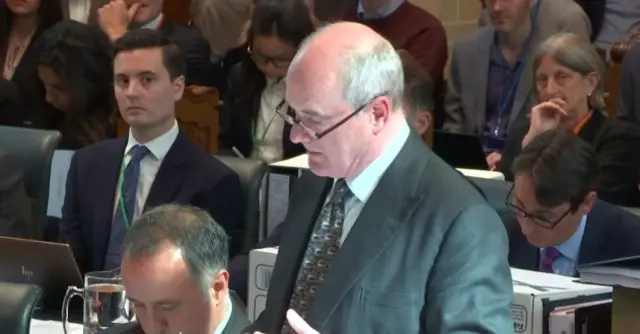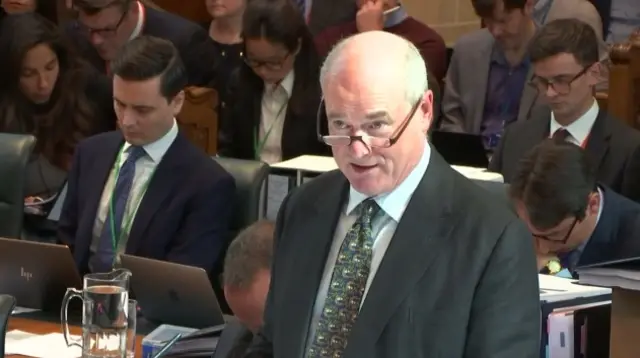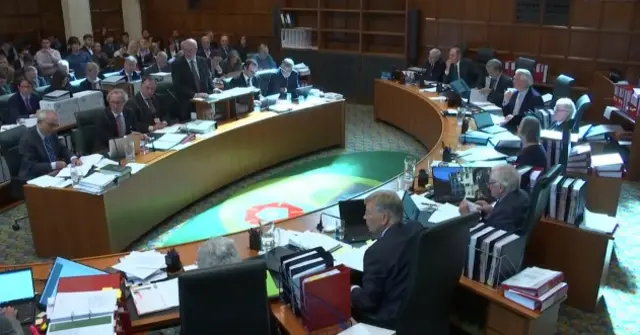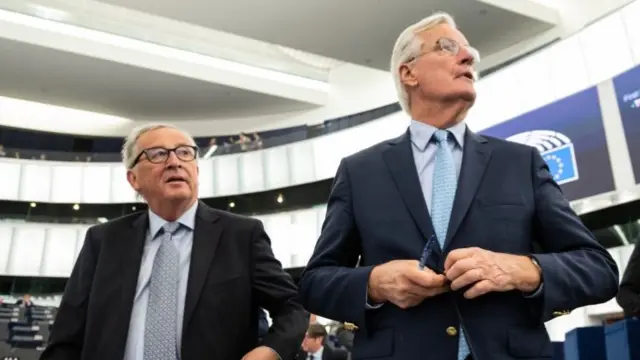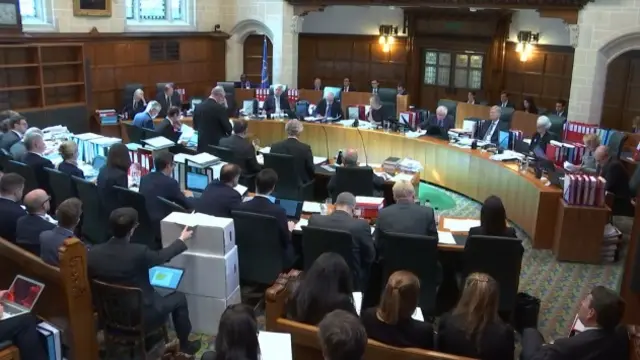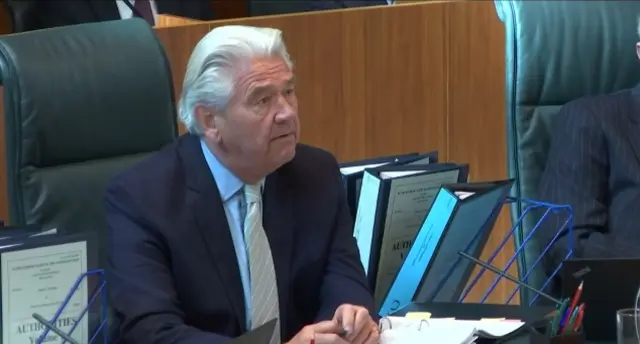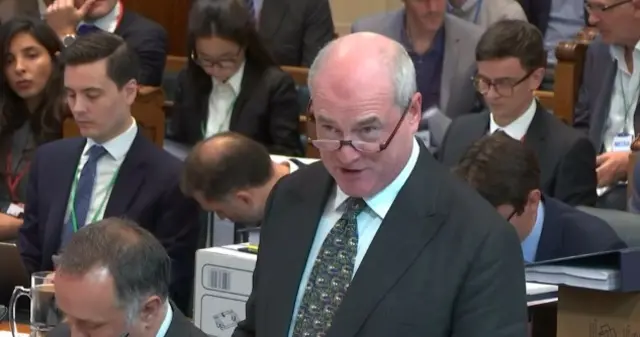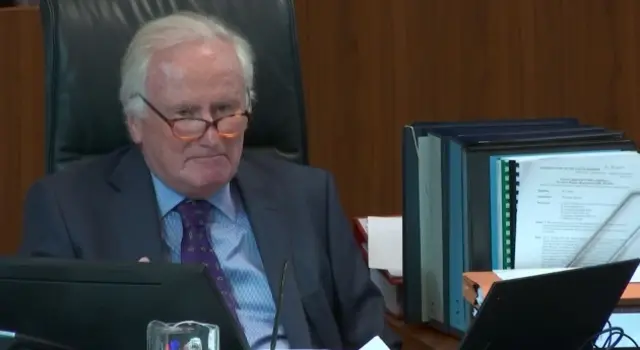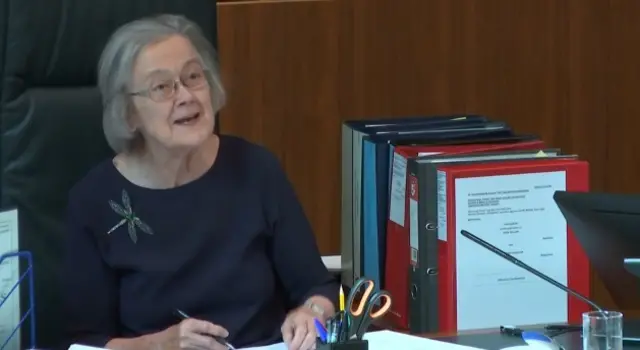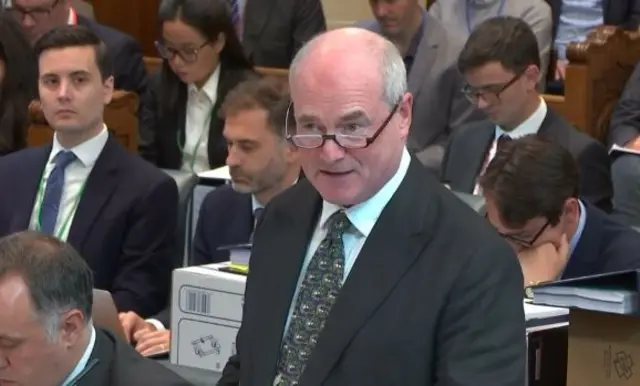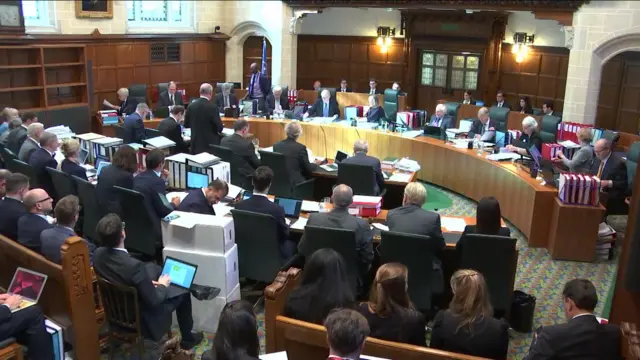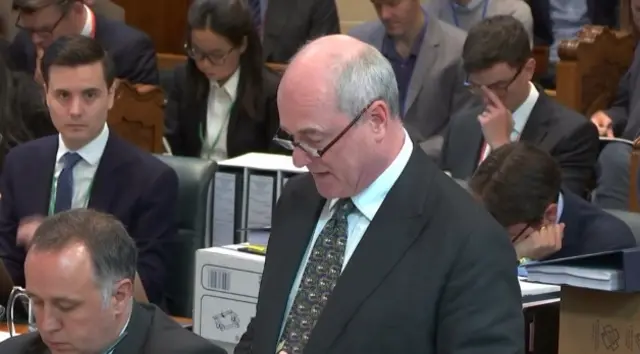Shifting expectations from the government?published at 12:15 BST 18 September 2019
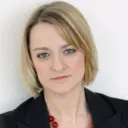 Laura Kuenssberg
Laura Kuenssberg
BBC political editor
This is all very unpredictable but the expectation in government might be shifting a bit in the Supreme Court case.
A senior government source says No 10 thinks the Supreme Court “will say prorogation is justiciable in principle".
In other words, it is a matter of law, not just politics, “and they (the judges) will fire warning shots about how a government shouldn't use this to close Parliament illegitimately”.
But No 10 does not, at the moment, think the Supreme Court will unravel their plan for a Queen's Speech on 14 October.
As a caveat, clearly we are all in very untested and spinnable territory here, and it will be down to the 11 judges, no one else.
Obviously this has implications for what Mr Johnson may be able to do next - remember in our interview this week he didn’t rule out trying prorogation again.
